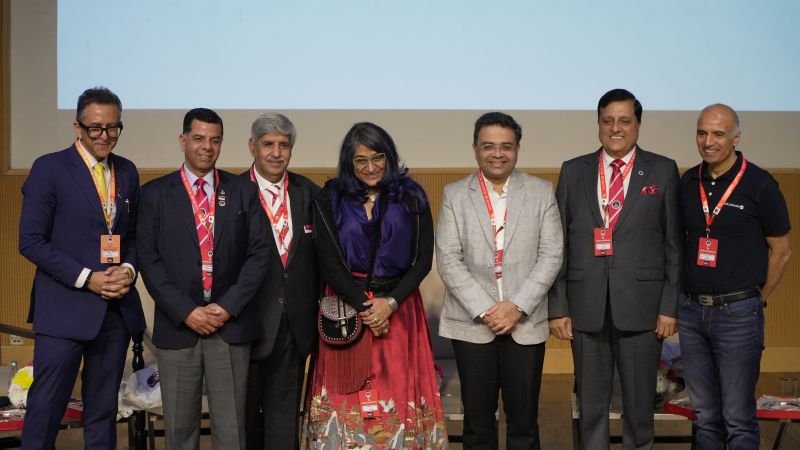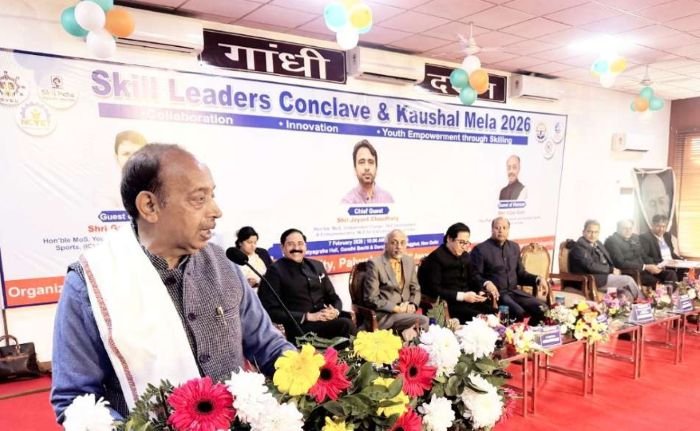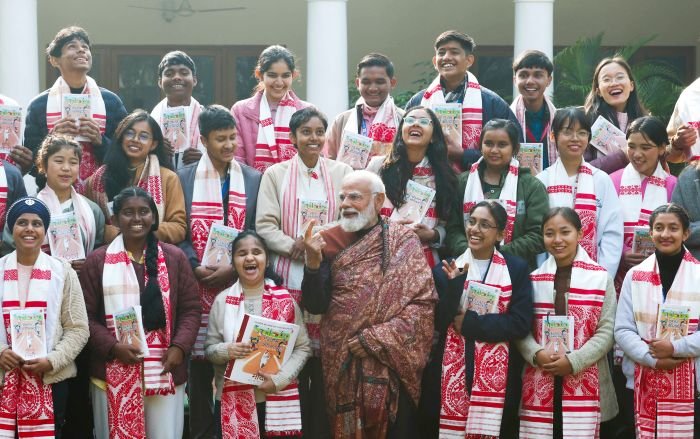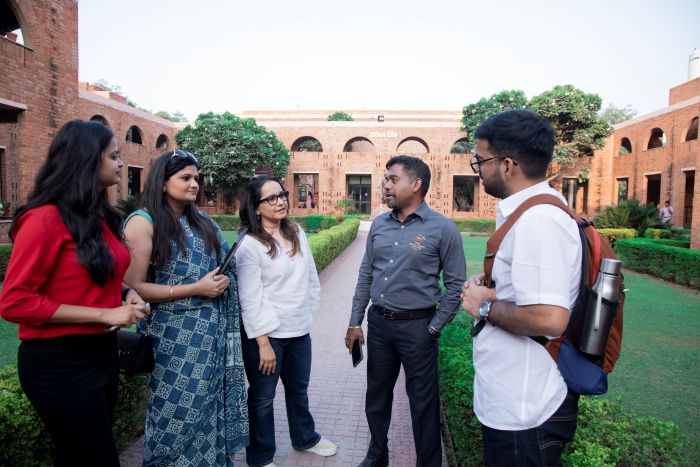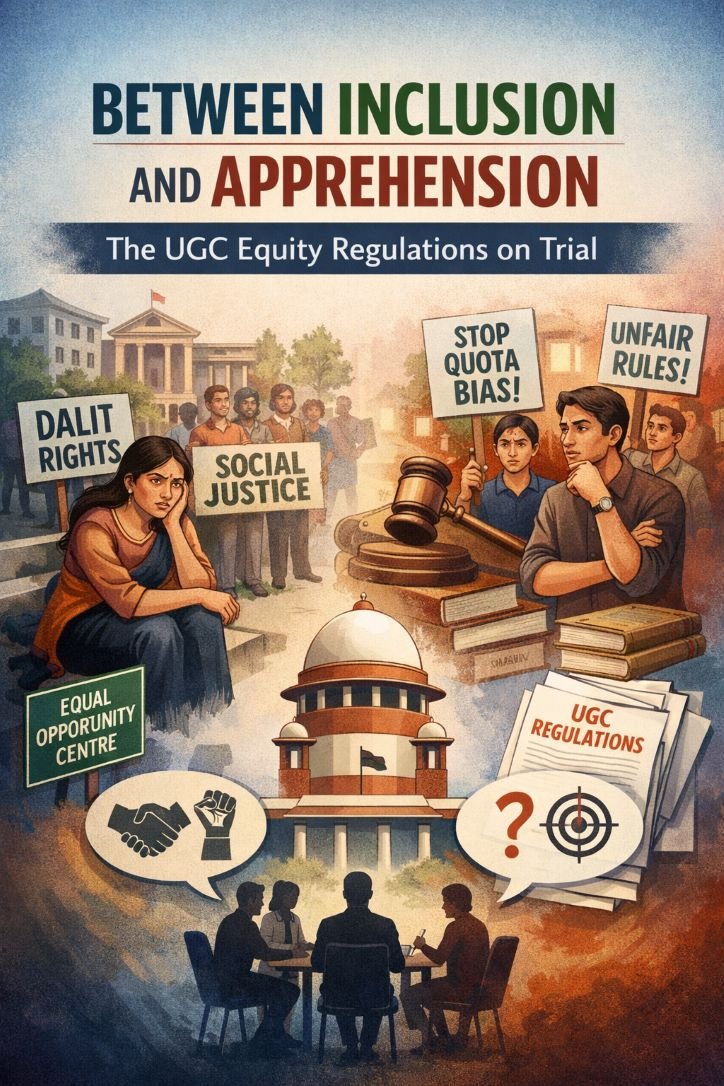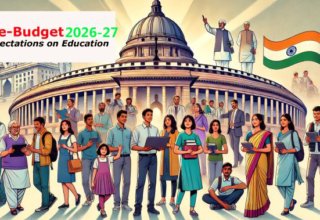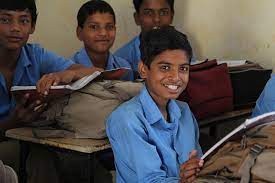
By Abhimanyu J. Kumar
 Inclusivity is and always has been a core ideal of our democracy, whether it is in the form of secularism, fundamental rights related to equality or an acceptance of different ideas and cultures from across the world. The most basic argument to substantiate the importance of inclusion in schools is that it is introducing inclusion at the most foundational level. For my arguments supporting this proposition, I am taking India as the context but most of the reasons for the importance of inclusion are valid for many other societies also.
Inclusivity is and always has been a core ideal of our democracy, whether it is in the form of secularism, fundamental rights related to equality or an acceptance of different ideas and cultures from across the world. The most basic argument to substantiate the importance of inclusion in schools is that it is introducing inclusion at the most foundational level. For my arguments supporting this proposition, I am taking India as the context but most of the reasons for the importance of inclusion are valid for many other societies also.
Let us first define inclusion and differentiate it from the concept of diversity. Inclusion is more than about advancing good public policy; it is about justice. Diversity is about recognising and celebrating differences. Inclusion goes a step further by addressing the deep-rooted social and economic conditions that promote discrimination and create inequalities. At the school level, this means recognising and trying to solve problems that deprive certain children from receiving quality education that they deserve.
RTE and Demographic Dividend
India has taken bold steps, at least in the form of enacting legislation, to promote such inclusion in schools. Let us take the Right to Education Act, for example, which requires all privately owned schools to reserve 25% of their seats in class 1 for underprivileged kids from poor households, and retain them until class eight.The schools will not be charging any fee from these students. The policy assures that the children admitted will not be segregated from other children,nor shall their timings for classes be different from other children. It also provides that these children shall not face any discrimination regarding facilities that the school provides to its students. Besides, the schools will be reimbursed for expenses per child.
While there is a lot to be said about whether or not the act is being implemented properly, laws such as this im to improve the quality of lives of people by breaking the cycle of poverty and empowering weaker sections of society. It is also about contributing to public good with a view to recognising the need for promoting social responsibility on the part of the private schools.The larger assumption is also that the private schools are in a position to provide quality schooling to students that government schools may not be able to provide.
The fact is that India promises the Right to Education to all its citizens. It is recognised that for leading a dignified and liberating life, education is very important. If we look at Indian demographics, states with higher literacy rates have better infrastructure and less crime. India is also a young nation with more than 850 million people below 35 years of age. These young people need to be educated for the country to achieve the demographic dividend. Education empowers individuals and helps them make the right choices and most importantly, can enable them to secure employment or seek meaningful career opportunities in their lives. It also reduces the risks and vulnerabilities that are associated with abject poverty, deprivation and impoverishment – all of which can potentially increase the risk of deviant behaviour.
Furthering the importance of education and, by extension, the importance of promoting inclusion in schools renders an educated individual as an asset to the community. They contribute significantly to the growth of a nation’s economy and provide bulk of the workforce. On the flip side, an uneducated person can become a burden on the state, requiring assistance from the government in the form of sponsored initiatives or funds. They undermine the productive capacities of the people of a nation. Education also enables people to make appropriate political decisions and improves the working of democracy. There is no scarcity of reasons as to why education should be provided to all children which is why it is a part of our fundamental rights. By providing education and creating opportunities through inclusion, we are investing in the future for reducing poverty, economic deprivation and hunger. Evidence shows that on an average, each additional year of education boosts a person’s income by 10 percent and a country’s GDP by 18 percent.
Tackling Maltreatment and Malnutrition
Inclusion is more than equality of opportunities; it is about equality of outcomes. Now equality of opportunities is great. It is indeed a sad fact that a few generations ago, social structure prevented certain children from getting any sort of education, for example Dalits being at the bottom of the caste system were shunned by society. Even if they were allowed any form of education, Dalit children would be constantly discriminated against at all levels of their access to education and were made to feel likelesser mortals. There have been instances of schools having different types of access to drinking water for those who are considered “inferior” .
It is true that since the Constitution of India was adopted and came into force, we have succeeded in prohibiting institutionalised forms of discrimination and also securing the principle of equality of opportunity. Article 17 of the constitution clearly outlaws untouchability and its practice in any form. Efforts have been made to allow all sections of society to have same opportunities and Article 14 of the Constitution recognises the Right to quality. However, it needs to be recognised that we are still not anywhere near achieving the idea of equality of outcomes. The vision of promoting inclusion in school recognises this ideal. Inclusion not only allows theunderprivileged the opportunity to receive education, it takes it upon itself to make sure they do.
Inclusive schemes such as the Mid-Day Meals encourage parents to send their kids to school. Under this scheme, the students in primary and upper primary classes are given free lunch in schools in order to incentivise more and more students to attend schools. Due to the fact that earning even a day’s meal can be a challenge for some families, this model is persuasive to motivate parents to send their kids to school. This policy ensures that the children get proper education and it also relieves their parents of the responsibility to give their children food, at least one meal a day.The policy has emerged as a game changer largely benefitting the underprivileged people. Through policies like this and their successful implementation, the poor, marginalised and underprivileged people of India can triumphantly climb the ladder of social empowerment. It aspires to provide a level playing field to all sections of society wherein everyone has the opportunity to excel in whatever field one chooses, but we need to do more to achieve the real equality of outcomes.
It is interesting to see how those impacted by this scheme are faring in today’s environment and to what extent the pandemic and lockdowns are impacting their lives and preventing the opportunity to access physical schooling. It is the worst possible outcome for these families as not only are their children losing out on education due to the lack of online facilities in rural India, but the meals that were given in school are also not available since the kids cannot attend school. The twin objective of the Mid-Day Meal has also been completely nullified by the pandemic, as the scheme was not only to incentivise and ensure education for the economically weaker sections of society, but also to provide them with a nutritious and healthy meal as it might be their only meal of the day. This just goes to show how essential policies based on inclusion are important in India today.
Overall Social Impact
The policy of inclusion in schools benefits society as a whole. By valuing people for their diversity, we also appreciate their lived experiences and learn from them. The lived experiences of these students from economically weak sections of society can help privileged children to appreciate the diversity that exists in society. It gives them perspective and inculcates values that appreciate privileges but also recognise the importance of responsibility that comes with those privileges. It also enhances their awareness of social and economic disparities in society.
Policies which provide financial support for education create new aspirations for these children that they could not possibly have harboured without this support. It changes the question from why should they go to a top school to why shouldn’t they. These children gain the ability to dream of a better life and work hard to realize those goals and aspirations, which advances our society as a whole. It is the responsibility of every society to guarantee a good quality of life for all its citizens and inclusion is an undeniable moral value based on justice for providing that standard of living.
Before concluding this piece, we must also think about what can and should be done to improve the situation. One of the biggest problems with policy today is implementation. Whether it is schools taking advantage of the vague parameters that the RTE has for recognising places that fall under its coverage, to just fully allotting the seats that are reserved for EWS, schools are not doing the best job they can in advancing this policy. Studies show that in terms of compliance, some states like Andhra Pradesh and Odisha are pegged at a dismal 1%. Delhi, however, leads with an approximately 90% compliance rate.
What needs to be done is to have more schemes to incentivise parents to send their kids to school, to help more states to have higher compliance with the RTE parameters and look out for better promotion of inclusion at the school level nationwide. Organisations which work to improve the socio-economic conditions of the underprivileged should be given appropriate funds to efficiently continue their work. As long as we keep pushing the boundaries, there will be a point where the scales tip and rural India along with the underprivileged sections of society, begins to emerge as real contenders in terms of educated men and women added to society. Inclusion in schools is, therefore, important because it provides us with the means to create a just, fair and equitable society for all. What is at stake here goes beyond social responsibility; it is about justice and what is truly right.
(The author is a Student of Class XII in Vasant Valley School, New Delhi and can be contacted at : abhimanyujkumar@gmail.com)


